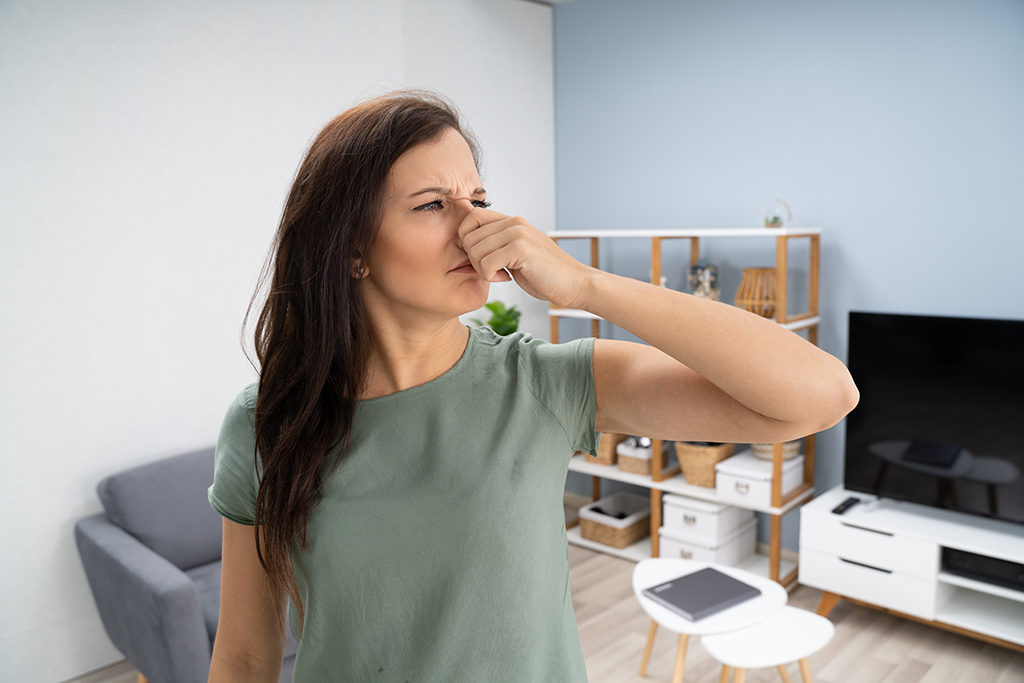
Photo By Andrey_Popov at Shutterstock
Natural gas has been used to cook, heat and light homes, and do laundry for well over a century. Today, 69 million American households use natural gas. It accounts for about 24% of residential energy consumption, according to the U.S. Energy Information Administration (EIA).
One of the biggest benefits of gas appliances is that they’re more energy-efficient than those that run on electricity. They save money on utility costs and have a considerably smaller environmental impact. Even in Fort Lauderdale, FL, where temperatures are generally mild year-round, any savings on utility bills are welcome.
While gas appliances are low-maintenance and worry-free for the most part, their one real downside is that even a tiny leak can be extremely dangerous, causing both health and environmental hazards. The good news is that natural gas leaks are not common. Still, it’s important that you be able to recognize the warning signs of a leak in your home and know what to do if there is one.
What causes natural gas leaks?
The most common causes of gas leaks are related to poorly-installed or damaged appliances, as well as pipes and fittings that erode and wear out with time. When this happens, the natural gas is able to escape into the air through tiny cracks or gaps.
Natural gas is colorless, so you’re not able to simply see a gas leak the way you can with a leaking sink or toilet. Not only is natural gas hazardous to breathe in, but it’s also extremely flammable. Even lighting a candle could cause a tremendous fire if there’s a leak in your home.
Fortunately, these leaks are often preventable with routine maintenance and there are several ways to detect them.
How to detect a natural gas leak
Whether you have several appliances in your home that run on gas or just one, there are distinct warning signs when there’s a leak.
Rotten egg smell
Fun fact: pure natural gas is actually completely odorless. Really! You may be wondering why it has that distinct sulfur-like rotten egg smell at times, which is an excellent question. It’s actually because a naturally putrid-smelling chemical called mercaptan, or methanethiol, is added to gas.
This is done specifically to help alert people when a leak occurs. Without it, leaks would be much more difficult to detect. So although that rancid rotten egg smell makes your nose curl up, it’s actually there to save your life!
Unexplained hissing sounds
If you hear a consistent hissing or whistling sound anywhere in your home or on your property, don’t dismiss it as nothing. Try to trace the source of the sound, as it could be the site of a leak. When a leak occurs, especially in a pipe, it often escapes through a tiny pin-sized hole, which is what causes that sound.
Although you would likely be able to smell the leak first, that isn’t a hard-and-fast rule. You may be able to hear the hissing sound without detecting the rotten egg smell – and vice-versa, for that matter.
If you’re not able to locate the source of the hissing and you aren’t sure if it’s a leak, one reliable method is to listen and see if the sound ever stops. A natural gas leak that’s truly hissing or whistling won’t stop on its own at all. If that’s the case, call your local Fort Lauderdale, FL, plumber to come out and have a look at what’s going on.
Brown patches in your yard
If you have grass in your yard and notice dead, brown patches all of a sudden or in unusual spots, give them a closer look. Natural gas pipes run underground and if there is a leak, the escaping gas prevents grass and other vegetation from getting necessary oxygen, turning it brown.
Along the same lines, this can also happen to indoor plants. If your household plants suddenly become wilted or die, you may have a leak in a gas line.
Unexplained symptoms
Gas leaks can cause gradual carbon monoxide poisoning as dangerous gas levels in the home increase and oxygen levels simultaneously decrease. Even if you can’t smell a leak and there are no visible signs of it, there may still be one.
Symptoms of carbon monoxide exposure and poisoning include headaches, lightheadedness, difficulty breathing, nausea, loss of appetite, nosebleeds, irritation in the throat or eyes, and ringing in the ears. If any members of your household experience these symptoms and are otherwise healthy, this could be an indication of a leak in a gas line in your home.
How a Fort Lauderdale plumber can assist with a leak in your gas line
If you do find a leak in the gas line in your home, don’t try to deal with it yourself. They can truly be dangerous, so this is a job for professionals. Natural gas leaks are extremely flammable, presenting a very real danger of fire. They can also cause a number of health problems that worsen with more exposure, including nausea, headaches, nosebleeds, and even depression and loss of consciousness.
At the first indication of a leak in the gas line in your home, call your local plumber. Open windows and doors to ventilate, and avoid the area where the leak is if at all possible. Do not operate any light switches or electrical outlets and don’t light candles. If you hear gas hissing or smell a particularly strong rotten egg odor, leave immediately and call 911.
Before you get to the potentially dangerous point of having a leak in a gas line on your property, contact bluefrog Plumbing + Drain of Fort Lauderdale or call us. We offer gas leak detection and repair services, plus we’re on call 24/7/365 for emergency services. We look forward to helping keep you and your family safe!






 Free Diagnostic - With Paid Repair
Free Diagnostic - With Paid Repair

